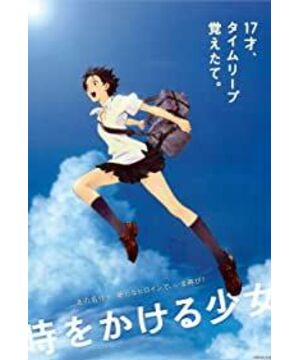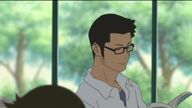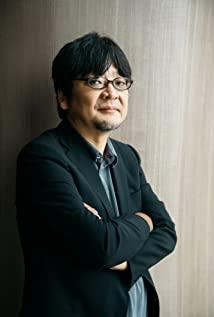Starting with a simple example, in the 16 minutes, 28 minutes, and 76 minutes of the movie, Makoto has a conversation with Aunt Witch in her room. Of course, there are two conversations with Aunt Witch, which are just scenes. Changed, but the effect is the same. And every dialogue of the witch aunt can have a revelation effect on the next plot. In the first conversation, Aunt Witch expressed that this ability to travel through is ordinary and ordinary, and then Makoto's travel is for some small things, such as staying in bed, for example, to eat pudding. In the second conversation, after the witch aunt said that there might be other people who would be unlucky in the process of jumping in time and space, Makoto began to really enter the main storyline-because of her constant travel through the so-called correction, which led to more and more A lot of trouble occurs. The third dialogue is to let Makoto understand that the passage of time is irreversible, and the lost past may never come back, and it also encourages Makoto. In the end, Makoto bravely used the ability to travel through time and space to gain a new life. Three almost identical scenes, under the deliberate arrangement of the playwright, Aunt Witch was always able to get to the heart of Makoto, and Makoto gradually realized the immutability of time and her true heart in these conversations.
And the most important scene here for the emotional changes of the characters and revealing the irreversibility of time, in my opinion, is Qian Zhao's confession to Makoto. At the fork in the road, Makoto got on Qianzhao's bicycle, and when he reached the river bank, Qianzhao confessed to Makoto.
This scene was repeated three times. The first time was the most natural one, and Makoto was unable to make a positive confession and traveled through time and space. While politely avoiding this topic, Qian Zhao still made a confession. When Makoto forcibly changed the subject for the third time, Qian Zhao even forcibly confessed, and was not affected in the slightest.
Clearly, the audience saw Makoto's inability to change the status quo by traveling through time and space. And Makoto, who already knew the result two times later, couldn't change the subject to avoid the confession, and even Qian Zhao would definitely confess when he rode to the point on the river bank. Such a simple and intuitive impact is the first real one, letting the audience understand that time is irreversible, something that must happen at a certain point in time, although it seems unreasonable because of Makoto's jumping in time and space, it still happens . In the first third of the film, by repeating the scene three times, the screenwriter has clearly informed this fact, making a complete foreshadowing for everything that follows.
And it's not just a structural repetition, not just to let the audience know that time is irreversible, not just to make the subsequent plot development more reasonable. The most important thing about the repetition of this scene is that through three confirmations, the protagonist let the audience know that Qian Zhao really likes Makoto. This fact is confirmed by Makoto and the audience, because where is the status quo that cannot be changed by three time-space jumps? Qian Zhao's love for Makoto will not change because of any external changes. Makoto gradually opened her heart by this confirmed fact, and finally found that she really likes Chiaki. Although Qian Zhao may have expressed her love for Ma Qin only once in her heart, in Ma Qin's mind, it was not only three times, but she clearly saw in her heart that even if she repeated it countless times, Qian Zhao would still love Ma Qin at that point in time. She confessed.
So even if Maqin knew that Qian Zhao had returned to the future, Maqin still believed that Qian Zhao would confess to her at that point, and for her, this was enough. She just wanted to hear his confession one more time.
The playwright's grasp of emotions has taken a leap here.
Qian Zhao did not confess, but told Makoto that he was waiting for her in the future.
Or because time is irreversible.
Qian Zhao does not belong to this era, he can only go back. It is still the young Qian Zhao who is waiting for her in the future, but Makoto is no longer the young Makoto.
Love can transcend time and space, but love still cannot resist the passage of time.
The emotion confirmed by the repeated scenes was flipped at the end by the writers.
Even if Makoto just wanted to hear it again, that confession.
【2015.11.29 Notes】
View more about The Girl Who Leapt Through Time reviews











